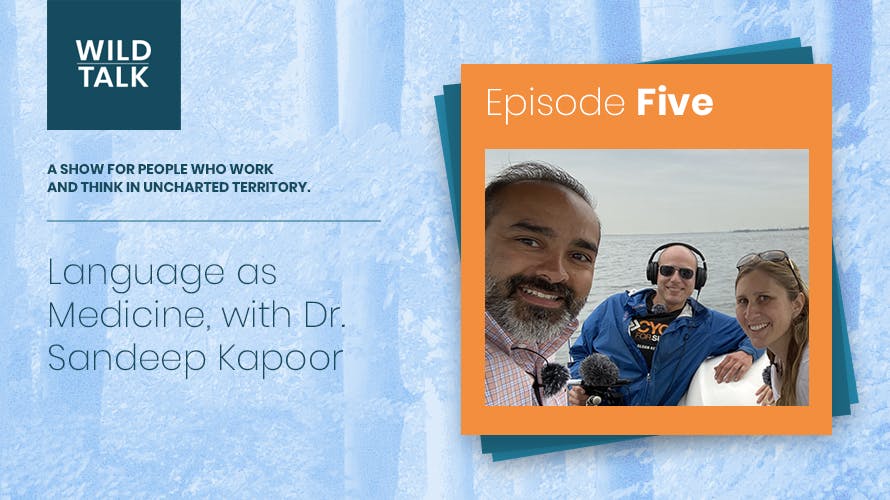Wild Talk: Language as Medicine, with Dr. Sandeep Kapoor

In this podcast episode, we take a motorboat ride with a healthcare innovator on the frontlines of the opioid epidemic to learn about the power of words to de-stigmatize substance abuse.
“We try to teach every young doctor that you can’t really care for a patient unless you care about him or her as a whole person. What better way to show and grow this basic empathy than by learning how to have meaningful, sometimes difficult, and absolutely necessary conversations about substance use?” — Dr. Sandeep Kapoor
Opioid-related overdoses and deaths were already a public health crisis before COVID-19 arrived, along with the economic stress and isolation that have come with it. Recent CDC data shows a 29 percent rise in overdose deaths between October 2019-September 2020, the largest increase since the 1990s, when the opioid epidemic began.
Turning the tide on the opioid epidemic, in the midst of a pandemic, may sound like a monumental task to most. But, for Dr. Sandeep Kapoor, a physician, a teacher, and healthcare innovator, something as simple as changing the words healthcare providers use to speak with substance use patients can help.
In this episode of Wild Talk, “Language as Medicine,” Emily Kagan-Trenchard and I go for a calming motorboat ride on Long Island Sound with Dr. Kapoor, the Associate Vice President of Addiction Services for Northwell Health. As someone who is on the frontlines of the fight against opioid addiction, Dr. Kapoor is well-positioned to reframe the conversation about treatment — one that is more human and about partnership and affirmation rather than judgement.
Dr. Kapoor and his team have helped clinicians broach the subject of substance use with over 1.5 million patients to date. This approach has proven so successful, Dr. Kapoor was recently awarded a major grant from the National Institute of Health to study gun violence prevention and establish and implement a first-of-its-kind protocol to universally screen among those at risk of firearm injury.
We hope you’ll tune into this must-listen episode about the role that shame and stigma play in the opioid crisis. How can healthcare professionals educate themselves to overcome implicit biases and speak with patients in more compassionate ways? And can any of those lessons be applied to other stigma-ridden public health crises, such as gun violence?


